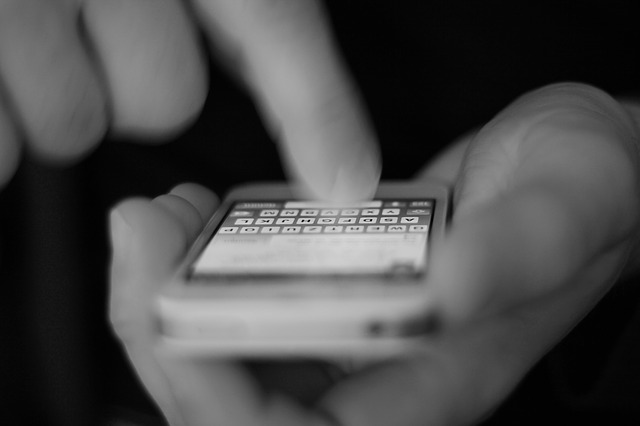With the increase in jobs these days, the number of applications received are quite vast. So screening of the candidates is essential in order to find the one that fits the bill.
There is a series of interview process which is carried out in order to identify the right candidate for the job.
To start with, many recruiters conduct telephonic interviews which enable them to decide if the job seeker can be taken to the next level of interviews or not.
 However, it is very important to take these telephone interviews seriously since a lot of skills are analyzed from the selection perspective and hence it is the first step to start the selection process.
However, it is very important to take these telephone interviews seriously since a lot of skills are analyzed from the selection perspective and hence it is the first step to start the selection process.
Further, adding phone interviews can be quite interesting as in most cases it is considered convenient for both the parties.
However, it may not have that effect as one has in a face to face interview. The plus point is that these interviews are generally quick and to the point and test the generic skills of the job seeker.
Best Tips to Answer a Phone Interview Call
So now we come down to the most important question how to handle a phone interview?
This is the most talked about topic as some may have not succeeded to the next round because of weak telephonic round in spite of being a potential candidate.
There need to be defined guidelines which can help you on how to answer a telephone interview call. Lets us list them down.
1. Setting up the phone interview:
The key step for starting off the phone interview is to first set it up at a convenient time and day.
Make sure the day is not long away, preferably the next day once you receive the call for an opportunity.
In many cases the timing of both the parties is taken into consideration and a common time is agreed upon. It is very important to be available on time to take this important call as this also adds to the screening process.
So make sure to choose a time when you know you are able to answer that call.
2. Do your research:
It is very essential that you keep yourself up to date about the company which is going to interview you.
So learning about their latest market standing, their trends and all other company analysis will help the seeker to ask questions and follow the company questions as well.
There is a reason why you are interested working in a specific company, so keeping company information handy is anytime good for validation.
Also at the end of the interview the keenness of the perspective employer increases when you ask questions about the company and how does it plan to grow in the future and some more on similar lines. With that said, let the employer keep that interest in you.
3. Polish and Practice:
The next thing that you need to keep in mind is practicing the communication skills which will be highly required when giving phone interview.
So practice the phone etiquette which is a must when attending such calls. This will help you to prepare well to handle the interview and will also show your readiness for the same.
- When you answer the phone, don’t greet with a ‘hello’ rather say your name so that the person from the recruiter’s side knows it’s you.
- Reciprocate to the opposite party using salutations like Mr. or Miss and using their last name. Never use their first name unless they specify the same.
- Not to eat or chew anything like a gum, you should be able to talk clearly
- Keep a glass of water handy, talking can make your throat run dry
- A smile can be sensed even over the phone so keep smiling it shows a warm approach
- Listen clearly and speak when you get your chance
- Don’t stretch the topic. Be crisp, clear and to the point
Practice what you would be saying to call in terms of greetings, introduction and how can you keep the conversation apt.
Also improvise on questions that you would want to ask. Refrain from discussing topics such as salary, start date etc. since in most cases they may be people from recruiting agency or from human resources dept. So answering these will not be their cup of tea.
4. Cease the environment:
 When an interview call is scheduled to make sure that the environment around is not noisy and that there are no distraction that would seek your attention. We need to take note of some points for the same
When an interview call is scheduled to make sure that the environment around is not noisy and that there are no distraction that would seek your attention. We need to take note of some points for the same
- Make sure to turn off the music system and television so that the focus is not divided.
- Wind up all the chores or leave them for later.
- Set yourself free for at least forty five minutes to an hour before the scheduled call so that your mind is on pace and at the same time you remain focused as well.
- Choose a location that doesn’t invade your privacy, preferably home (taking into consideration the time set and your availability as well)
- Make sure to arrange things that may come handy, such as notepad and pen for taking down notes if required. Keep all this within reach and ready.
5. Prepare Guidelines:
When it comes to interview there are always questions that keep your mind racing. But most of the times one may tend to lose the track of the same.
A telephonic interview gives you a chance to prepare you for the same and also since a person cannot see you, it gives you the edge to prepare notes and keep handy.
Preparing a key guideline can help you a lot while nailing the phone interview. So it’s advised to drop down some of the important points which you may need on the call.
For instance, writing down the series of questions which you intend to ask regarding the job or the company.
Build reference points of things that could be asked on the call, especially generic topics such as current work, introduction, and achievements and so on.
These are the most likely asked question to hit off the interview so making reference points will keep you on track.
Another important thing is to keep a hard copy of your CV handed since most of your skills and knowledge will be displayed there and the interview will be around those lines.
6. Be Patient and Calm:
Interviews in many ways can be stressful. Keep in mind that you need to maintain certain calmness in your tone.
Being calm and relaxed can help you understand the recruiter’s points more diligently and you will be better geared to answer them as well.
Moreover an interview will also test the ability to answer things in a pressure, it’s a skill test which shows how calm you can handle a situation. Being patient will help them to understand that you are a good listener.
If you are unable to understand anything, you can always ask them to repeat, in that way you can buy time and answer.
7. Be Assertive and attentive:
 It is very important that the recruiter feels a sense of positivity in you. You should have the ‘can do spirit‘ and also show that you are someone who is open to challenge as well.
It is very important that the recruiter feels a sense of positivity in you. You should have the ‘can do spirit‘ and also show that you are someone who is open to challenge as well.
Be very positive in your approach, you don’t need to sound over committed, but more of the fact that you have a positive approach in work.
Be very attentive as to what is being discussed on the call, don’t deviate from the point to prove another point. If there is something you are not clear about you can get it clarified for betterment of both the parties.
Note down the important points which may be your concern or something that you may want to reflect about.
8. Factoring technological glitches:
This concerns the technical difficulty that would possibly be encountered if the call is going to be attended through the cell phone.
Make sure that the space you plan to speak from has network coverage. You can even consider wearing a headset which makes your hands free for taking down notes and being more comfortable.
If you don’t have a strong network, then its best advised to use a landline. Also keep in mind that you are within the reach of your laptop or computer just in case if it is required for anything.
However, it is also true that these technical issues can be momentary and uncalled as well.
9. Clean and Professional language:
 Interviewers need to sound clean and professional and the same applies even while answering the phone interview as well.
Interviewers need to sound clean and professional and the same applies even while answering the phone interview as well.
Being preliminary round, it is very important to make an impression to the recruiter. Use a professional tone which is more appealing as it conveys the seriousness of you as a job seeker for the said profile.
Refrain from using the usual slang words such as “hey” “yo”and so on as these will not mark a good impression to the opposite person. Keep your language clean and simple.
It is not necessary to use big words, but rather speak clean, simple and clear. That in itself adds a pleasing factor to the interview.
Avoid using words if you don’t know the meaning of it rather use simple talking skills without any slang. It’s an interview after all you want to show your best.
10. Taking the interview call:
So finally the time has come when you need to put the above points into practice. It’s natural to be nervous, but better not to show it. It does happen that sometimes you may fumble out of excitement or nervousness.
If something like this happens excuse and pardon yourself as they display your sense of etiquette as well. Talk slowly so that things are discussed at a pace. Try and give your best impression.
Don’t over share your knowledge unless you are asked to. Go with the recruiter’s line of questions and don’t deviate from the topic at hand.
While on call you should consider standing up as it helps to create a movement in the conversation too. When the interview is over, do ask questions concerning the job or the company as it shows your interest level.
11. Ask for the next step:
Now that the interview is done and even your questions are asked do not end the call without asking the next step. Ask what is expected out of you after the call is over.
If you are to follow up or they will inform you?
This expresses your enthusiasm as well. Be expressive and speak up so that there is no miss from your end.
Ask for contact information and keep them handy in order to reach someone just in case.
12. Express that you are Thank-full:
Once the interview is over make sure to immediately send over a thank you note or an email expressing your gratitude for the same.
The note is merely to embark a reminder that you have valued their time and justified the same.
It is also to remind them about how your strengths can be of added value to the job opening. Basically, it is to re-iterate how you can fit for the role.
The above mentioned points play a key role while answering a phone interview. In most cases today phone interviews give high preference as it helps them to eliminate the candidates to finally select the one that fits perfectly for the job.
In many ways it tests your communication skills, convincing power without physical presence and self endurance as well.
New Trends of Telephonic Screening:
After a careful analysis, it is seen that an effective telephonic interview can raise your prospects of getting the job by at least forty percent.
The rest 60% accounts in the personal face to face interview, which tests for your personality, knowledge and experience. And these next levels of interviews are taken with different levels of management.
However phone interviews now are advanced by the presence of emails and instant communications. The candidates can be asked to perform or work on small on the spot assignment as well or may be asked to send one the following day.
The screening enables the employers to eliminate candidates, which don’t sound convincing enough on the phone.
Considering there are hundreds of applications received for a single job, having a face to face interview with each one can be a unnecessary and time consuming process. Hence, to select a handful telephonic interview plays an utmost role for that matter.
If you are smart you will sound the same on the other side of the phone and that’s one of the basis used for choosing a candidate for the next round as well.
With the competitive spirits soaring high, the selection criteria can get tougher too. There could be a scene where all the applicants are strong prospects for an opening or there could be a scene where there is not a single strong potential as well. So the balancing act becomes very different based on situations.
With the telephonic round the key skills are determined based on which the candidate is advanced to the next level. It forms the basis of the further assessments.
Also, if any assignment is given for testing the key skills along with the interview, even that can be detrimental for the selection.
The assignment given on the spot doesn’t have to be complicated, but a situational based testing.
You may be asked to work out a problem and send email while the recruiter will still be on the phone. This highlights the area of the quick thinking of the seeker.
However the recruiter may or may not give the conclusion of the assignment on the phone, especially if they are from the HR side.
They would pass on the assignment to the concerned department head or the manager of the required job. And based on their findings you will be further notified of the same.
Share your experiences:
The above information can be marked as a good guideline source in order to be well prepared for answering a phone interview.
The whole idea is to give the job seekers a self evaluation of their own skills so that they are able to crack the interview round.
You are most welcome to share your feedback, experiences and opinions about the same. Follow these guidelines, and share what worked and what you could improvise more on. Practice and polish are the key skills in this respect.
If you have been successful in advancing to the next rounds, then you have done something right .
Nailing an interview is not very difficult, but portraying your skills is. Practice, multi-task and self-evaluate, as these will help you to develop.
Share your experiences and be expressive. Don’t forget you have two important key aspects with you, one is confidence and the second is the smile.








































